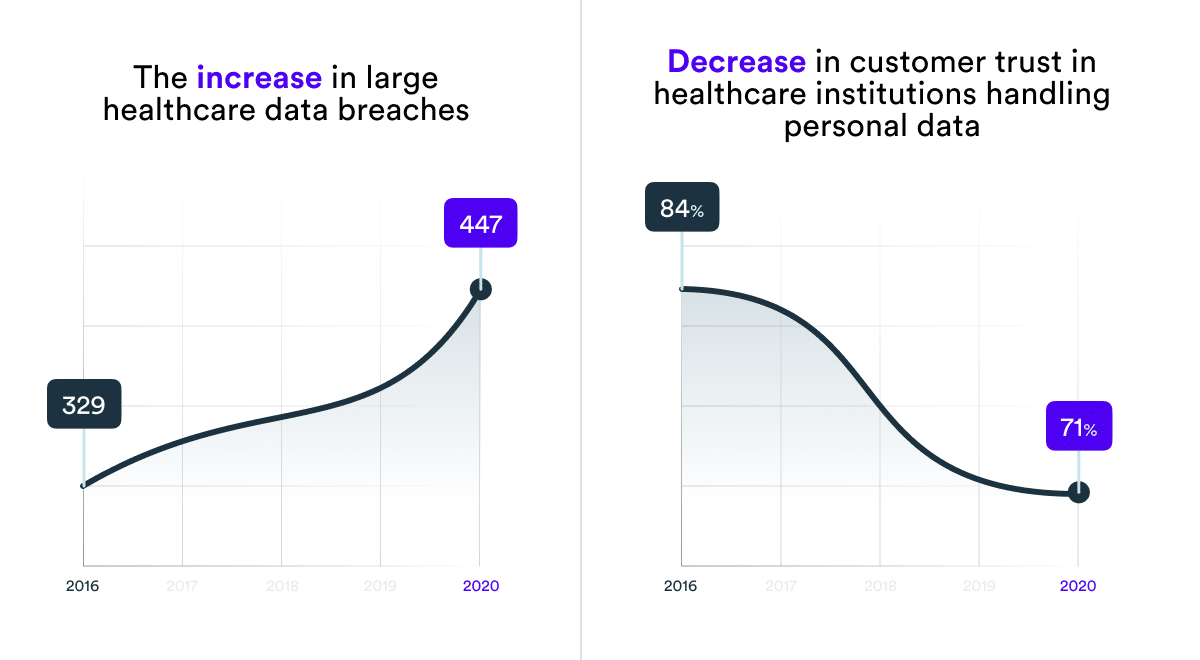Healthcare institutions carry implicit risk because of all the sensitive personal information they have on record. The rise of cloud technology and digital record-keeping has made cataloging that information easier, but the risks associated with the task more pronounced. This modern catch-22 came to a head in 2020 with the Covid-19 pandemic forcing a large percentage of healthcare services to go fully digital.
An autumn 2020 survey conducted by PWC’s Health Research Institute helped capture the issues on healthcare professionals’ minds as the world recovers from the pandemic, and data compliance is near the top of the list. 95% of large US healthcare institutions now cover telehealth, and 38% of executives expect more than a quarter of clinical trials to be virtual in the coming years, both significant jumps from pre-pandemic levels.
One trend that pre-dates Covid, however, is the increase in large healthcare data breaches, up from 329 occurrences in 2016 to 447 in 2020. There is a corresponding decrease in customer trust in healthcare institutions handling personal data, down from 84% to 71% over the same period. This is a major problem for healthcare providers, as customer trust is everything in the industry.
Executives have taken note of this issue and are trying to get back into the collective good graces of the public. One part of that equation is data protection and residency regulations, with governments trying to increase data transparency at the behest of the public. Accordingly, 68% of respondents to PwC’s survey have reviewed business partnerships within the new regulatory environment.

For international healthcare providers, the logistics of data compliance will be vastly more complex than smaller healthcare providers. The topic of data protection regulations was already trending upward over the past half-decade before Covid, with many countries adopting either healthcare-specific laws or cross-sector laws that curbed cross-border data flows and expanded the rights of the individual to their own data. With Covid shining a spotlight on the digitization of the healthcare industry, those data regulations are sure to be front and center over the next few years as governments try to find a balance between patient rights and the public good.
Healthcare institutions will have to navigate the difficult space of compliance as it reshapes itself to fit a new, post-pandemic world. Organizations will have their hands full with simultaneous efforts to manage both compliant data protections and industry innovation that can improve customer trust in healthcare.
Luckily, the InCountry team has put together a great resource to help healthcare service institutions navigate the changing global data residency landscape. Knowing the trends in regulation and which country requires what will benefit any company doing business internationally. InCountry partners with best-of-breed SaaS applications like Salesforce, ServiceNow, and Veeva Systems to deliver data residency-as-a-service and ensure our customers’ data is distributed and localized to meet compliance regulations.



